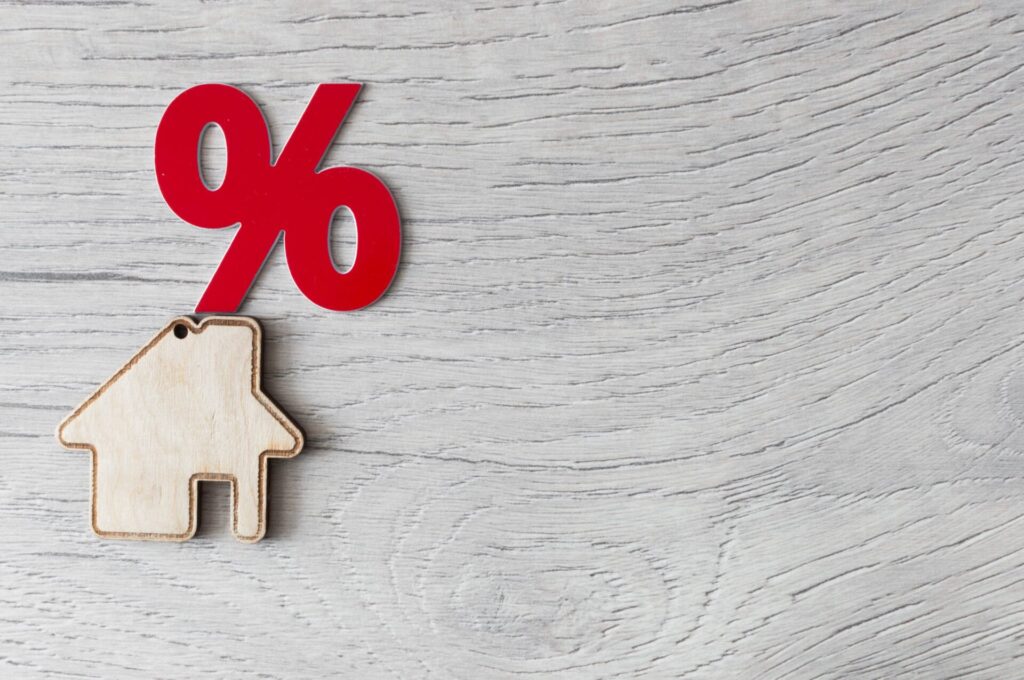The Importance of Choosing the Best Mortgage: Tips for Homebuyers
Imagine the feeling of standing on the threshold of your very first home, keys in hand, heart brimming with excitement, and the future stretched out before you. I know that feeling intimately, as I’ve been there myself. My journey to homeownership was a rollercoaster ride, filled with ups and downs, highs and lows, but ultimately, the moment I walked through my own front door was worth every twist and turn.
However, reaching that milestone was not without its challenges. The home-buying process is complex, with a myriad of decisions to make and factors to consider. Among these, one of the most critical aspects is finding the perfect mortgage. It’s a bit like trying to find a needle in a haystack, with numerous options and seemingly endless information to sift through. But worry not, dear reader, for I have navigated this labyrinth before and emerged wiser for it. I’m here to share my hard-earned knowledge and personal experiences with you, so you can make the best possible decision when choosing the mortgage that will carry you across the threshold and into your dream home.
In this article, we’ll dive deep into the world of mortgages, exploring the various types available and their unique characteristics. We’ll also discuss the importance of understanding your financial situation, risk tolerance, and long-term goals when selecting a mortgage. By the end of our journey together, you’ll be armed with the knowledge you need to confidently choose the mortgage that’s just right for you and your future home.
So, let’s embark on this adventure together and unlock the door to your perfect mortgage!
Understanding Mortgages: Different Types of Mortgages

Fixed-Rate Mortgages
Overview and characteristics: With fixed-rate mortgages, your interest rate remains the same throughout the entire loan term. This means your monthly principal and interest payments never change, providing a sense of stability and predictability.
Pros and cons: On the bright side, fixed-rate mortgages offer security in a fluctuating economy. However, they may come with slightly higher interest rates compared to adjustable-rate mortgages at the outset.
Ideal scenarios: If you plan to stay in your home for the long haul and prefer consistency in your budget, a fixed-rate mortgage might be your glass slipper.
Adjustable-Rate Mortgages (ARMs)
Overview and characteristics: Adjustable-rate mortgages have an interest rate that changes periodically, usually tied to a financial index. They often start with a lower interest rate than fixed-rate mortgages but can fluctuate over time.
Pros and cons: The initial lower interest rate can be attractive, but remember, it can also increase significantly over time. This unpredictability can make budgeting a challenge.
Ideal scenarios: If you’re a risk-taker or plan to sell your home before the rate adjustments kick in, an ARM could be your perfect fit.
Interest-Only Mortgages
Overview and characteristics: With interest-only mortgages, you only pay the interest on the loan for a set period. After this period, you’ll need to start paying the principal, which can result in a significant jump in monthly payments.
Pros and cons: The lower initial payments can be alluring, but they come with the risk of payment shock when the principal payments begin.
Ideal scenarios: Interest-only mortgages might be suitable for borrowers with fluctuating incomes, such as freelancers or those expecting a significant increase in income in the near future.
FHA Loans
Overview and characteristics: Federal Housing Administration (FHA) loans are government-backed loans designed for low-to-moderate-income borrowers. They require a smaller down payment and have more lenient credit requirements.
Pros and cons: FHA loans make homeownership more accessible, but they come with the added cost of mortgage insurance premiums.
Ideal scenarios: First-time homebuyers or those with less-than-perfect credit could find FHA loans to be their fairy godmother.
VA Loans
Overview and characteristics: VA loans are backed by the Department of Veterans Affairs and are available to eligible veterans, active-duty service members, and some surviving spouses. They often require no down payment or mortgage insurance.
Pros and cons: VA loans offer fantastic benefits to eligible borrowers but are limited to a specific group of people.
Ideal scenarios: If you’re eligible for a VA loan, it could be your royal ticket to homeownership.
USDA Loans
Overview and characteristics: USDA loans are backed by the United States Department of Agriculture and are designed for low-to-moderate-income borrowers in rural areas. They often require no down payment and have competitive interest rates.
Pros and cons: While USDA loans make homeownership more attainable for those in rural areas, they come with geographical restrictions and income limitations.
Ideal scenarios: If you’re seeking a home in a qualifying rural area and meet the income requirements, a USDA loan could be a golden opportunity.
Jumbo Loans
Overview and characteristics: Jumbo loans are non-conforming mortgages that exceed the conforming loan limits set by Fannie Mae and Freddie Mac. They are designed for borrowers seeking higher-priced homes.
Pros and cons: Jumbo loans allow for larger loan amounts, but they often require higher credit scores, larger down payments, and more stringent underwriting requirements.
Ideal scenarios: If you have a strong credit profile and are in the market for a more expensive home, a jumbo loan could be your key to unlocking the doors of your dream abode.
Balloon Mortgages
Overview and characteristics: Balloon mortgages come with lower monthly payments for a set period, after which a large lump sum payment (the “balloon”) is due. They typically have shorter terms, usually between 5 to 7 years.
Pros and cons: The lower initial payments can be appealing, but the looming balloon payment can pose a significant financial challenge if you’re not prepared.
Ideal scenarios: Balloon mortgages could be fitting for borrowers who expect to sell or refinance their home before the balloon payment is due, or those who anticipate a substantial financial windfall.
Assessing Your Unique Situation: The Cinderella Moment
Before you start your mortgage search, it’s essential to have a clear understanding of your financial situation and future plans. Evaluating your needs and preferences can help you choose the right mortgage and achieve your homeownership goals.
Personal anecdotes: the various factors considered when choosing a mortgage
Everyone’s financial situation is unique, and there’s no one-size-fits-all approach to choosing a mortgage. Consider factors such as your income, debts, credit score, and employment status when assessing your financial situation. Think about what you’re willing to compromise and what you can’t live without when evaluating your priorities.
Importance of evaluating financial stability, future plans, and risk tolerance
It’s crucial to assess your financial stability and future plans when selecting a mortgage. Ask yourself questions like: Do I plan to stay in this house for a long time? Will my income change in the near future? How much risk am I willing to take? Evaluating these factors will help you make an informed decision and avoid future financial headaches.
Determining how much house you can afford
Determining how much house you can afford is a critical step in choosing the right mortgage. Lenders use debt-to-income (DTI) ratios to assess your financial health and determine how much mortgage you can afford. As a general rule of thumb, your mortgage payment should not exceed 28% of your gross monthly income.
By taking the time to evaluate your financial situation, future plans, and risk tolerance, you’ll be better equipped to find the mortgage that aligns with your needs and goals. Remember, the perfect mortgage is out there waiting for you to find it!
Interest Rates: The Fine Print Matters

The significance of interest rates, and how they impact mortgage choice
Interest rates are like the secret ingredient in a recipe, making a huge difference in the final outcome. They can significantly impact your monthly payments and the overall cost of your mortgage. Thus, understanding the importance of interest rates and their effect on your mortgage choice is essential.
Comparing fixed and adjustable interest rates
When choosing between fixed and adjustable interest rates, think of it as deciding between a steady, reliable companion and a more adventurous, unpredictable one. Fixed interest rates provide consistency and predictability, while adjustable rates may offer lower initial payments but can fluctuate over time.
Original research: analyzing historical interest rate trends
To offer some context, let’s take a look at historical interest rate trends. Over the past few decades, interest rates have experienced both highs and lows, with periods of stability and volatility. Understanding these trends can provide valuable insights when making your mortgage decision, but remember, past performance doesn’t guarantee future results.
Mortgage Term: The Long and Short of It
Exploring 15-year, 20-year, and 30-year mortgage terms
Mortgage terms are like the chapters of a book – each with its own unique story. The most common mortgage terms are 15, 20, and 30 years, with each offering distinct advantages and disadvantages.
Analyzing the pros and cons of each term
15-year mortgage term
- Lower interest rate
- Faster equity build-up
- Overall lower cost
- Higher monthly payments
- Less affordable for many borrowers
20-year mortgage term
- A balanced option between 15 and 30 years, with relatively lower interest rates and faster equity build-up than a 30-year term.
- Higher monthly payments compared to a 30-year term, potentially limit affordability.
30-year mortgage term
- Lower monthly payments, making homeownership more attainable for a larger pool of borrowers.
- Higher interest rate
- Slower equity build-up
- Overall higher cost
Personal experience: deciding on the best term for individual needs
In my quest for the perfect mortgage, I discovered that choosing the right term is an essential piece of the puzzle. As a financial blogger who’s been there, done that, my advice is to evaluate your financial goals, risk tolerance, and long-term plans before settling on a mortgage term. It’s all about finding the balance between affordability and long-term costs, ensuring you can live comfortably today while still planning for tomorrow.
Down Payments: The Cherry on Top

The importance of down payments
Down payments are the cherry on top of the home-buying sundae. They’re the initial investment you make in your new home and serve as a foundation for building equity. Down payments also demonstrate your financial commitment to lenders, which can impact your mortgage options.
How down payment size affects mortgage choice
A larger down payment can lead to better mortgage terms, including lower interest rates and a reduced need for mortgage insurance. Conversely, a smaller down payment may require you to pay for mortgage insurance and could result in a higher interest rate.
Creative strategies to save for a down payment
Saving for a down payment can feel like an uphill battle, but with a little creativity, you can conquer the climb. Consider strategies like:
- Automating savings to a dedicated account.
- Reducing expenses by cutting back on non-essentials.
- Exploring down payment assistance programs.
- Receiving a financial gift from a family member.
Remember, every little bit helps when saving for your dream home’s down payment.
Shopping Around: A Treasure Hunt for the Best Deal
Why it’s essential to shop around for a mortgage
Shopping around for a mortgage is like embarking on a treasure hunt. By exploring different lenders and their offerings, you increase your chances of discovering the best deal that suits your needs. Comparing mortgage options can save you thousands of dollars in interest and fees over the life of your loan.
Tips on finding the best mortgage lender
To find the best mortgage lender, consider the following tips:
- Research various lenders, including banks, credit unions, and online lenders.
- Read customer reviews and seek recommendations from friends or family.
- Compare interest rates, fees, and customer service.
- Consult with multiple lenders to gain insights and negotiate better terms.
Original research: lender comparison based on personal experience
During my own mortgage treasure hunt, I compared different lenders based on their interest rates, fees, and customer service. I discovered that while some lenders offered lower rates, their customer service was lacking. In the end, I chose a lender that provided a balance of competitive rates and exceptional service. Remember, finding the perfect mortgage is a personal journey – so be diligent, patient, and keep your eyes on the prize.
Government Assistance: A Helping Hand

Overview of government-backed mortgage programs
Sometimes, we all need a helping hand, and that’s where government-backed mortgage programs come in. They provide support to eligible borrowers, making homeownership more accessible. Some popular government-backed programs include FHA Loans, VA Loans, and USDA Loans.
Eligibility criteria and benefits
Each program has its own eligibility criteria, but generally, they offer benefits like lower down payments, more lenient credit requirements, and competitive interest rates. Here’s a quick rundown of eligibility and benefits for each:
- FHA Loans: Designed for first-time homebuyers and those with lower credit scores. Benefits include low down payment options and more flexible credit requirements.
- VA Loans: Aimed at veterans, active-duty military personnel, and eligible surviving spouses. Benefits include no down payment requirement and no mortgage insurance.
- USDA Loans: Designed for low-to-moderate-income homebuyers in eligible rural areas. Benefits include no down payment requirement and competitive interest rates.
Personal experience: utilizing a government-backed program
In my home-buying journey, I found that a government-backed program was the perfect fit for my needs. The lower down payment requirement and more lenient credit criteria helped me achieve homeownership without breaking the bank.
Preparing for the Mortgage Application Process
As you get closer to applying for a mortgage, it’s essential to prepare yourself for the application process. This section will guide you through the steps to ensure a smooth and successful mortgage application experience.
Gather essential documentation
Mortgage lenders require various documents to assess your financial situation and creditworthiness. Collect these documents beforehand to expedite the process:
- Proof of income (pay stubs, W-2 forms, tax returns)
- Bank statements and investment account statements
- Proof of assets (real estate, automobiles, etc.)
- Credit report and credit score
- Identification documents (driver’s license, passport, Social Security card)
Review and improve your credit score
Your credit score plays a significant role in the mortgage application process. A higher credit score can result in better mortgage terms and lower interest rates. Review your credit report, identify areas for improvement, and take steps to boost your score.
Determine your budget and down payment
Before applying for a mortgage, determine your budget and how much you can afford for a down payment. Use online calculators or consult with a financial advisor to help you establish a realistic budget that aligns with your financial goals.
Get pre-approved
A mortgage preapproval is a preliminary assessment by a lender of how much they’re willing to lend you. It’s an excellent way to show sellers that you’re a serious buyer and can help you stand out in a competitive market. Reach out to multiple lenders to obtain preapproval and compare their offers.
Be prepared for closing costs
Closing costs are fees associated with finalizing your mortgage and can range from 2-5% of the loan amount. Set aside funds for these costs and factor them into your budget.
Benefits of Choosing the Best Mortgage

Selecting the perfect mortgage for your unique situation can yield numerous benefits, enhancing your overall financial health and well-being. Let’s explore some of the advantages of making the right mortgage choice:
Financial savings
Choosing the right mortgage can save you a considerable amount of money over the life of the loan. By securing a lower interest rate or selecting the optimal mortgage term, you can minimize interest costs and maximize savings.
Stability and peace of mind
A mortgage that aligns with your financial situation and future plans provides stability and peace of mind. Knowing you can comfortably afford your monthly payments without stretching your budget too thin allows you to enjoy your home without added stress.
Flexibility and adaptability
The right mortgage should offer flexibility and adaptability, accommodating changes in your life and financial circumstances. For instance, an adjustable-rate mortgage may be ideal for someone expecting a substantial increase in income, while a fixed-rate mortgage offers stability for those who prefer predictable payments.
Improved credit score
By selecting a mortgage you can afford and making timely payments, you’ll demonstrate responsible credit behavior. This can lead to an improved credit score, which opens the door to better financial opportunities in the future.
Achieving homeownership goals
The perfect mortgage can help you achieve your homeownership goals, whether it’s buying your first home, upgrading to a larger house, or investing in a vacation property. A well-suited mortgage empowers you to realize your dreams while maintaining financial stability.
Tax advantages
Choosing the right mortgage can also provide tax advantages. Mortgage interest is often tax-deductible, which means you can potentially lower your taxable income and reduce your tax liability. Consult with a tax professional to understand how this may apply to your specific situation.
Secure Your Dream Home with the Best Mortgage: Final Thoughts
As we wrap up our exploration of choosing the best mortgage for your home purchase, it’s crucial to reiterate the importance of finding the perfect mortgage. The right mortgage can lead to significant financial savings, stability, flexibility, and a sense of accomplishment as you achieve your homeownership goals.
In your quest to find the ideal mortgage, remember to:
- Educate yourself on the various mortgage types and their pros and cons.
- Assess your unique financial situation and future plans.
- Compare interest rates, mortgage terms, and down payment options.
- Shop around and explore government-backed programs.
Finally, trust your instincts and embrace the journey. With diligence, research, and expert advice, you can secure the mortgage that fits your needs like a glove. Here’s to happy house hunting and finding the perfect mortgage for your dream home!
